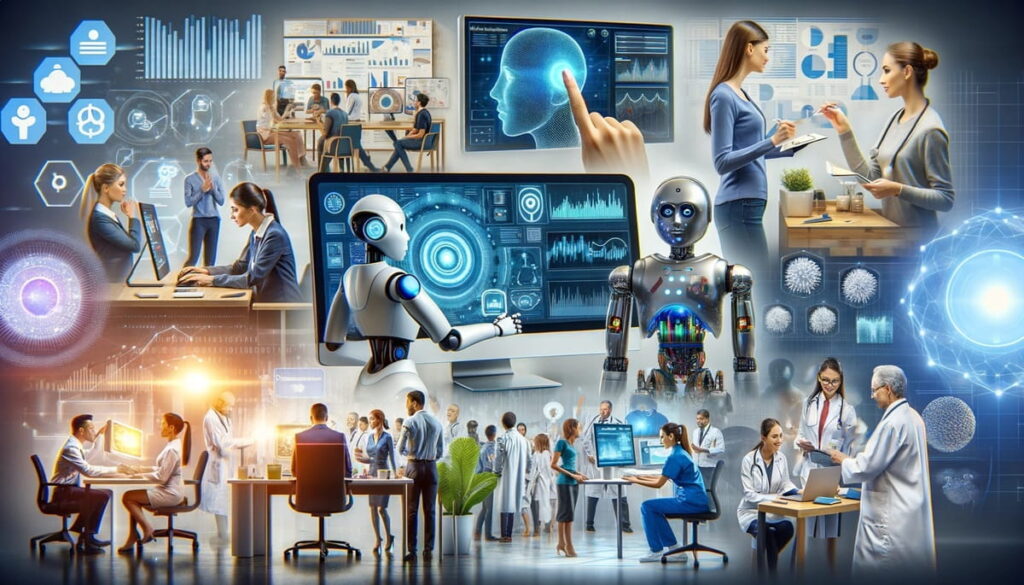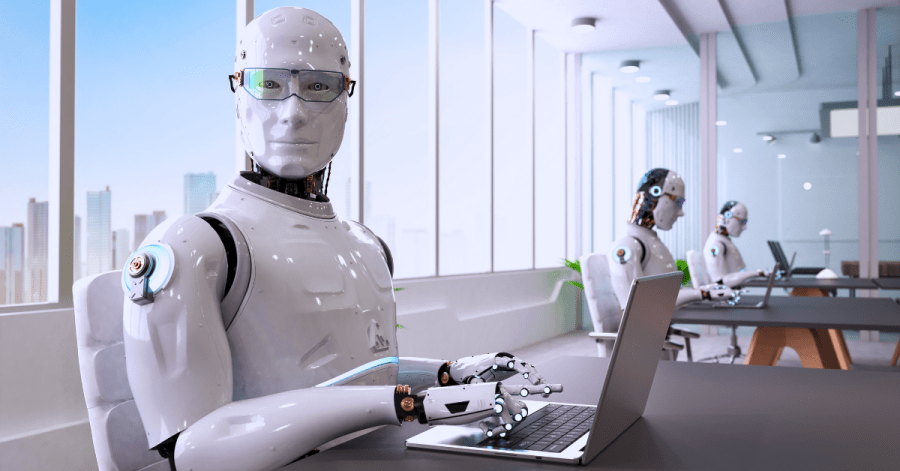
Artificial Intelligence (AI) is transforming the workplace, reshaping industries, and revolutionizing the way we work. From automation and data analysis to enhanced decision-making and productivity, AI is becoming an indispensable tool across various sectors. Here’s a look at how AI is changing the future of work and what professionals need to do to adapt and make use of it.
1. Automation of Repetitive Tasks
One of the biggest impacts of AI is automation. AI-powered software and robotics are handling routine, repetitive tasks in industries such as manufacturing, finance, and customer service. Chatbots are replacing human agents in customer support, while AI-driven robots are streamlining warehouse operations. This shift allows employees to focus on higher-value tasks that require critical thinking and creativity.
2. AI-Driven Decision Making
AI analyzes massive amounts of data to provide insights that help businesses make better decisions. Companies use AI-powered analytics tools to identify trends, predict market behavior, and personalize customer experiences. This is especially useful in sectors like finance, healthcare, and e-commerce.
3. Enhanced Productivity and Efficiency
AI-powered virtual assistants and automation tools help workers accomplish tasks faster. For example, AI-powered project management software can schedule meetings, assign tasks, and track progress automatically. Employees can boost their efficiency by leveraging AI tools that optimize workflows and reduce time spent on mundane activities.
4. Transformation of Job Roles
With AI taking over repetitive tasks, new job roles are emerging. AI specialists, data analysts, and automation engineers are in high demand. Companies are looking for employees with AI-related skills, making it essential for professionals to upskill and stay relevant.
5. AI in Hiring and HR
Recruiters are increasingly using AI-driven platforms to screen resumes, assess candidates, and predict employee performance. AI helps HR departments find the right talent quickly and efficiently, improving the overall hiring process.
6. Remote Work and AI Collaboration
AI is playing a crucial role in the rise of remote work. AI-powered collaboration tools, such as virtual assistants and AI-driven communication platforms, allow teams to work seamlessly across different time zones. This has led to increased flexibility in work arrangements, making remote work more viable than ever.
7. Cybersecurity and AI
As businesses rely more on digital platforms, AI is being used to enhance cybersecurity. AI-powered security systems detect threats, prevent cyberattacks, and safeguard sensitive data in real time.
How to Adapt to the AI Revolution
To stay ahead in an AI-driven workforce, professionals must:
- Learn AI and Data Analytics: Understanding AI tools and basic programming can give professionals a competitive edge.
- Develop Soft Skills: Creativity, critical thinking, and emotional intelligence remain irreplaceable by AI.
- Embrace Lifelong Learning: Online courses, workshops, and industry certifications can help individuals stay updated.
- Use AI to Your Advantage: Incorporating AI-driven tools in daily work can improve efficiency and career growth.
Get the Best AI Learning Resources
If you’re looking to upskill and stay ahead in the AI-powered workforce, check out these best AI learning resources on Amazon: Best AI Learning Tools & Books.
Conclusion
AI is revolutionizing the workforce, making jobs more efficient while also creating new opportunities. Instead of fearing AI, professionals should embrace it as a tool for growth. By adapting and learning new skills, employees can thrive in the future of work.
Stay ahead of the AI revolution and explore tools that can enhance your career: AI Productivity Essentials on Amazon.


